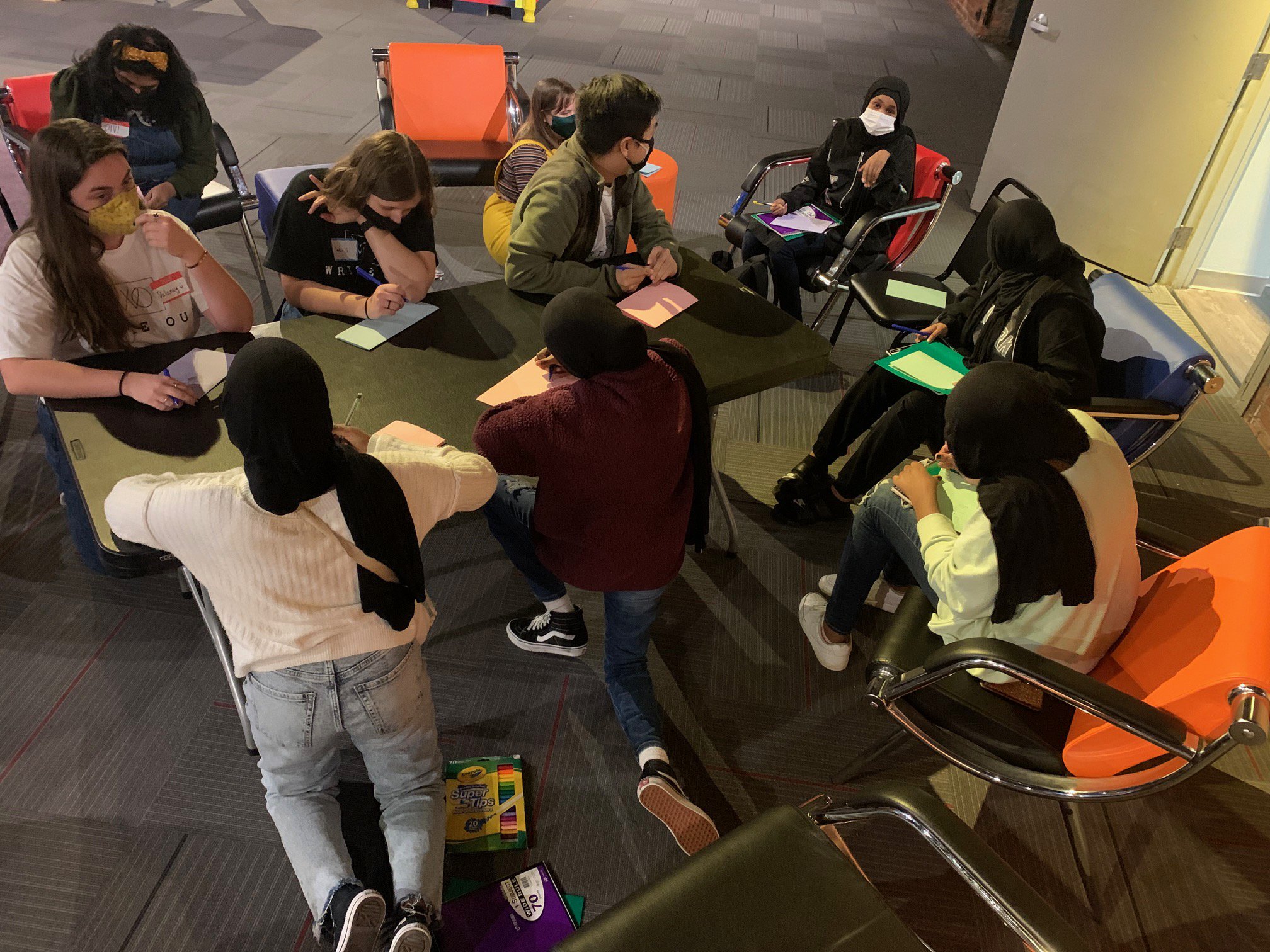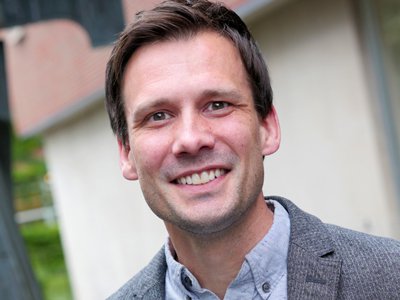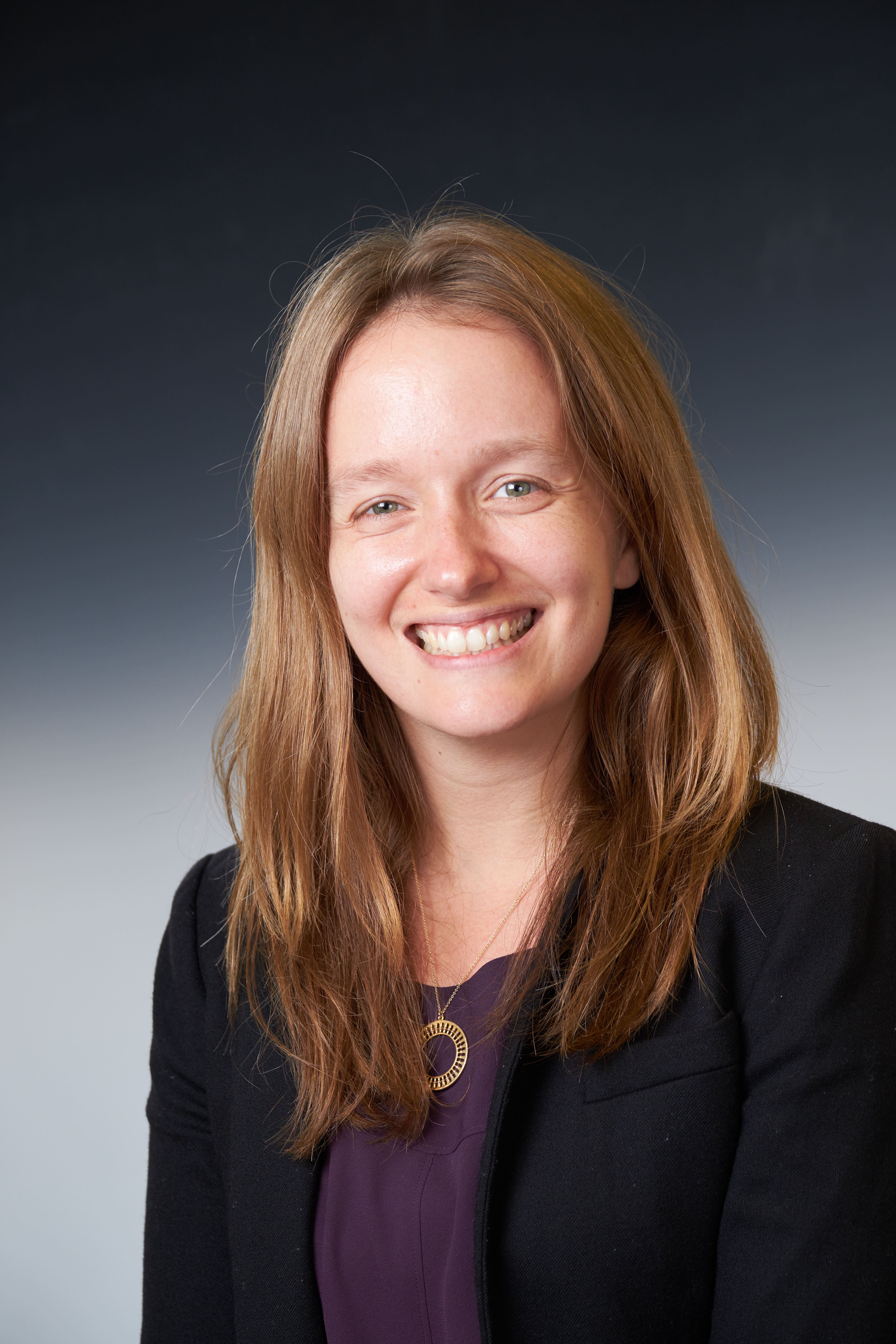Integrating Research and Community Engagement
The Engaged Humanities Network awards five mini-grants to students and faculty at Syracuse University for community-engaged projects.

For students looking to combine an interest in social justice and community engagement with hands-on, real-world applications, the Engaged Humanities Network (EHN), based in the College of Arts and Sciences (A&S), offers the perfect opportunity to be part of community problem-solving through academic inquiry and action.
EHN was developed by Brice Nordquist, associate professor of writing and rhetoric and the A&S Dean’s Professor of Community Engagement. “I have been working with different community-based organizations on humanities and arts projects since moving to Syracuse eight years ago,” says Nordquist. “In my time here, I’ve become more familiar with resources in the city and with people engaged in long-term community-centered work. But I’ve also noticed that there are few opportunities to coordinate and connect across projects and communities.” What this translates to is a lost opportunity for resource sharing, collective problem solving and mutual support and funding across community-engaged projects. According to Nordquist, this cross-pollination does not take place “except for when it happens by chance, because there are few structures designed to serve as connective tissue among all of these shared efforts.” EHN hopes to change that.

As part of this effort, Nordquist assembled an undergraduate research team last year along with Anne Mosher, then-director of Maxwell’s Citizenship and Civic Engagement program, Pam Heintz, director of the Shaw Center, and Kate Hanson, director of the SOURCE. “The undergraduate research cohort is one of the programs the EHN runs to create new opportunities for students, grad students, undergraduates and faculty to develop and grow different community-engaged projects,” says Nordquist. “Part of the work we do is to pair undergraduate research assistants with new or ongoing faculty projects.”
In order to seed and support publicly engaged research, mini-grants from A&S were established. Last year, five faculty-led projects were selected for funding and are now underway. The projects range from language to math, and each includes research undertaken by students with faculty with community engagement.
EHN In Action
The project Anti-Racism in Algebra, overseen by Nicole Fonger, assistant professor of mathematics, addresses the inherent obstacles to Black learners in traditional math education. This fall, Fonger is meeting weekly with a team of teachers, parents, and high school students in the Syracuse City School District (SCSD). “The aim of the grant work is to build relationships with folks in SCSD who are already doing the work of supporting Black learners of mathematics,” says Fonger.
Another program, Spanish in Action, led by Professor Maria Emma Tico Quesada and Professor Elizabeth Juárez-Cummings of Languages, Literature, and Linguistics, pairs native and non-native Spanish speakers from Syracuse in workshops to empower them to view their bilingualism as an academic and professional asset.
Collaboration is Key
But the community-facing side of the individual projects are only one piece of the puzzle. The academic-facing side requires that the participants—all the faculty, staff, graduate students, and undergrads involved—meet regularly to discuss their projects, troubleshoot and share ideas and resources. In keeping with research protocols and best practices, they also share the goal of collecting data from their projects to make future community engagement projects more meaningful, equitable and sustainable.

Based on the group consensus from Fonger’s team, for example, “one short-term aim is to do a pilot intervention study in the spring with one or more of the math instructional coaches to implement what anti-racist math coaching would look like, and then test those with our teachers and students and get their feedback,” says Fonger.
Nordquist explains, “The undergraduate research team is embedded in the projects to both help design programs and facilitate them. They also do entry and exit surveys with participants, conduct interviews over the course of the year, take observation notes and use this data for the creation of adaptable assessment toolkits to be used across the university and beyond.”
The group is currently pursuing Institutional Review Board approval and aims to publish their model and findings so that other institutions can adapt them in their communities.
Maggie Sardino, a junior considering a law degree, participated last year in the conceptualization and launch of EHN and this year is serving as a project manager of the EHN undergraduate research team. These experiences can serve as a strong foundation for a career in law, or any relationship-focused discipline.
“Something that I appreciate so greatly about EHN is its focus on relationships,” says Sardino. “A lot of times engaged humanities work happens in silos. What the EHN is really all about is getting at that untapped collaborative potential and putting the right people together to really maximize the effectiveness of our programming at SU.” Sardino maintains that EHN is helping inform her worldview and will continue to in the future. “What this experience has taught me is how important it is to make sure that the programs we’re creating are sustainable and will continue to make a positive impact in communities we’re engaging with.”
Spring Presentation
EHN will publicly present their projects and results in Spring of 2022. This year’s projects, besides Anti-Racism in Algebra and Spanish in Action, include Write Out run by students and professors in the English Department’s Creative Writing program, who partner with local after-school programs to get students between the ages of six and 16 excited about storytelling; Doctrine of Discovery, involving professors and students from the Department of Religion, the Indigenous Values Initiative, and the Skä•noñh Great Law of Peace Center to study the history of religious laws that permitted seizure of Indigenous lands; and La Casita’s Echoes from Africa, which incorporates African art traditions into art therapy for children from ages six through 17.
Featured
Brice Nordquist Associate Professor and Dean’s Professor of Community Engagement
